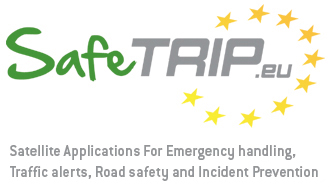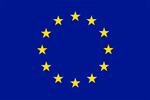

Introduction
User Needs
Environment
Passenger Transport Operators
Environment
Access to Vehicle Information
Access to Environmental Information
Description of Methodology
Others
Safety
Entertainment
Others
Individuals EU-Citizens
Safety
Navigation
Entertainment
Emergency Services
Call Filtering
Information about Heavy/Hazardous Goods
Information about Coach/Bus involved in Incident
Emergency ServicesEmergency services include firefighters, ambulance and the police. They deal with emergency calls from motorists and responses on a daily basis. They are required to provide the most appropriate response to each genuine emergency incident without wasting resources – so as not to incapacitate the service from dealing with subsequent or parallel responses. There are two key aspects in responding effectively to an emergency call. - The response has to be appropriate and scaled to the resources available. - The response has to be as fast as possible by having precise information about the location of the incident and as much relevant information as possible about the emergency circumstances When it has been established that a real emergency has to be attended to, an emergency response plan is activated. Based on the information at hand, critical decisions are taken to send the right team of first responders. Typically, as more information becomes available from the first responders, additional support is dispatched if required and if available. Thus, the richer the information is about an emergency during the emergency call, the more appropriate is the response and as a result, the chances of saving lives are greater. Pan-European eCallThe eCall is the pan-European emergency call service for vehicles. In a bid to reduce the impact of accidents and improve road safety, eCall is designed to work seamlessly across Europe and is supported by most of EU member states. The eCall can be activated manually or automatically by the vehicle (e.g. following an impact during an accident). The On-Board Unit (OBU) then establishes an automatic emergency communication (E112) over the cellular network with a Public Safety Answering Point (PSAP). The communication comprises of a voice transmission together with the dispatch of the accident data (Minimum Set of Data – MSD) to the PSAPs operator answering the call. The European Commission (EC) is moving ahead with plans to ensure that all new vehicles are equipped with the eCall system with eCall legislation starting in 2015. For more information about the eCall initiative, please consult the EC’s webpage on eSafety and eCall. Currently the emergency call number, the call handling agency and the response procedure is heterogeneous across Europe. |


PSAP: the physical place where eCall terminates and that first receive the emergency call. We assume that is managed by a Public Authority or by a private organization recognized by Government. The most appropriate PSAP is the one identified on a territorial base by right Authorities to serve the emergency calls starting from a specific geographic area or to manage emergency calls of a certain type (e.g. eCall).

